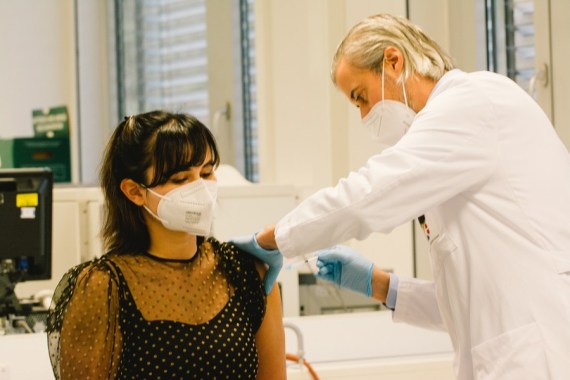Germany's tough COVID-19 lockdown beginning to pay off: Merkel
Published : 21 Jan 2021, 22:39
Chancellor Angela Merkel called it encouraging at a press conference here on Thursday that the COVID-19 surge in Germany was beginning to ease, reported Xinhua.
"This shows that the tough cutbacks that people in Germany have had to endure for weeks are starting to pay off and it basically shows that the effort is worth it," she said.
The number of daily COVID-19 infections was below the previous week's level and increased by 20,398 on Thursday, according to Robert Koch Institute (RKI), the federal government agency for disease control and prevention. To date, 2.09 million coronavirus cases have officially been recorded in Germany.
The seven-day incidence rate per 100,000 inhabitants also continued to fall in Germany and stood at 119 on Thursday, which was the lowest since the beginning of November, 2020, according to the RKI. The incidence rate hit a record high at 197 before Christmas.
Due to the high COVID-19 infection rates last autumn, Germany entered a lockdown at the beginning of November. It failed to reverse the trend in infections, so the restrictions were tightened and only recently were extended again until the middle of February.
Despite the recent decrease in infection numbers, Merkel said "we are in a very difficult phase of the pandemic because we have a mixed picture" as the country is dealing with "frighteningly high death rates."
The number of deaths in Germany related to COVID-19 remained high and increased by 1,013 in the past 24 hours, bringing the country's official death toll to 49,783 on Thursday, the RKI said.
"These are not just numbers, these are people who died in loneliness, these are fates, these are families who mourn them," stressed Merkel.
The new strains of the virus continue to present a danger, she said. Citing scientific findings, Merkel said the new virus strains were many times more contagious than the previously known form, which meant that the spread of these variants had to be slowed down as much as possible.
The RKI noted in its recent daily situation report that the virus strains first reported in the United Kingdom and South Africa had already been detected in Germany. "With increased sequencing and data acquisition the infection process is increasingly monitored," it noted.
Merkel warned that a wait-and-see approach could lead to a third, possibly more severe, wave of the pandemic. "There is still time to prevent the danger that lies in this mutated virus."
As the world is struggling to contain the pandemic, vaccination is underway in many European countries with the already-authorized coronavirus vaccines.
Meanwhile, 237 candidate vaccines are still being developed worldwide -- 64 of them in clinical trials -- in countries including Germany, China, Russia, Britain and the United States, according to information released by the World Health Organization on Jan. 15.


